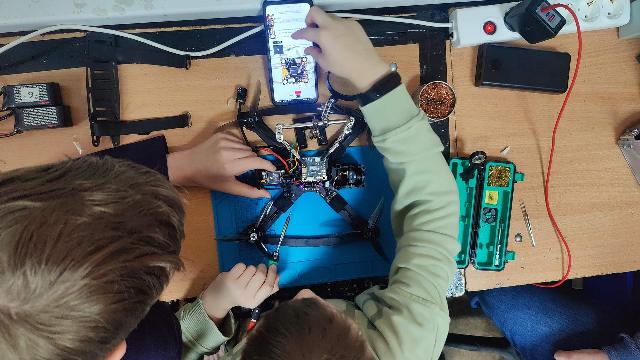Thanks to such studies, some of them will be able to find themselves in the field of programming or engineering, experts say.
Students and schoolchildren will be able to gain practical skills in working with UAVs under the guidance of developers of unmanned vehicles and operators from the free zone. The new project "Assemble a Drone" is being launched in educational institutions in St. Petersburg and Moscow. Students will be able to acquire basic technical competencies that will be useful when choosing a future profession, experts say.
Drone assembly in schools and universities
The project "Assemble a Drone" has been launched at the Razumovsky Moscow State Technical University and Lyceum No. 533 in St. Petersburg, bringing together students, schoolchildren, manufacturers of unmanned systems and volunteers serving in the free military zone.
— Its purpose is to teach schoolchildren and students how to assemble drones under the mentorship of representatives of a manufacturer of disembodied systems and UAV operators from the free zone. The latter will work with students remotely," Sergey Kurapov, project manager and researcher at the MGUTU named after K.G. Razumovsky, told Izvestia.
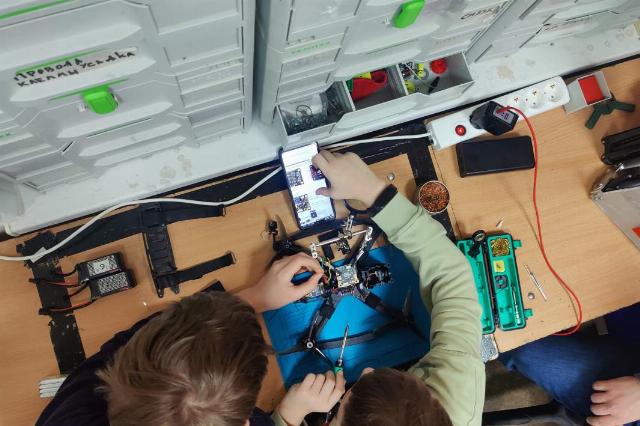
Photo: press service of GBOU lyceum No. 533 Krasnogvardeisky district of St. Petersburg
Image source: iz.ru
This will enable teenagers to acquire engineering skills, such as soldering elements and microchips, assembling and configuring drones, as part of the school curriculum without taking additional courses. Representatives of the Russian company Sektor, which develops and manufactures UAVs, will teach how to work with drones.
The process will be monitored by UAV operators from the Terek brigade. They will share their practical experience with students and tell them, for example, how best to solder and seal so that the assembly is of high quality and it is possible to fly in all weather conditions.
— In the course of such interaction, through mentoring, the adaptation of ITS fighters is underway. This is how we feel supported, it helps us to carry out tasks on the front line. And there is also an understanding that our skills will be useful in a peaceful life. We are learning to teach and bring our knowledge to the younger generation," said a fighter from the UAV detachment with the call sign Carlo in a conversation with Izvestia.
We are looking for talents
According to a representative of the Sector company, their social task is to train future personnel and raise the prestige of engineering professions.
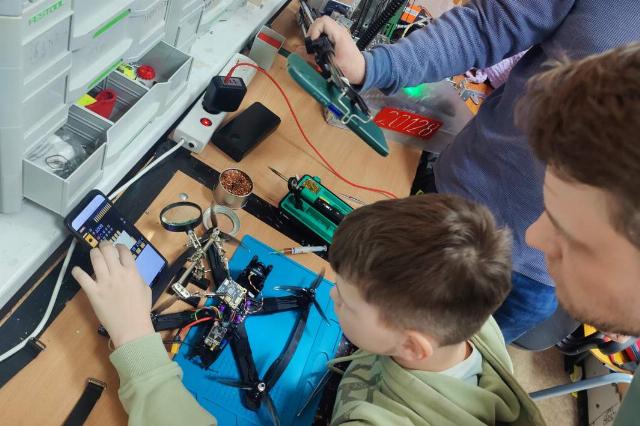
Photo: press service of GBOU lyceum No. 533 Krasnogvardeisky district of St. Petersburg
Image source: iz.ru
— We are interested in such investments, because students undergo internships and get to know us as an employer. We invite the best to join us. This is more effective than hiring a person "by advertisement", since young specialists already know the specifics of our work," he stressed.
The idea is good and necessary, but not for the development of the unmanned sphere here and now, but to create the foundation for it in the future, military expert Yuri Lyamin told Izvestia.
"Schoolchildren and students will be able to gain skills in working with the simplest electronics and modern systems," he believes. — This project will be able to help discover talents in this field among them. No one can ever say for sure what a child is predisposed to. It's only through trial and error that it turns out. And maybe thanks to such studies, someone will find themselves in the field of programming or engineering. Unmanned vehicles will be even more actively introduced into our lives in the future, so these skills will be useful to the children. And for the state, this is a good platform for training personnel for the future.
The main bonus of such programs is that students will receive basic training in assembling fairly complex technical products, such as modern drones, military expert Dmitry Kornev told Izvestia.
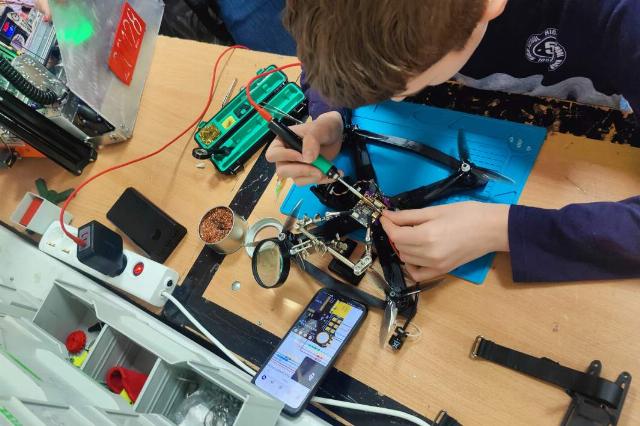
Photo: press service of GBOU lyceum No. 533 Krasnogvardeisky district of St. Petersburg
Image source: iz.ru
"It may be necessary both for personal development and to create a foundation for preparing the base for production," he noted. — There is a shortage of qualified engineering personnel in high-tech industries, including in the military-industrial complex. And it's happening right now.
A course on working with UAVs for schoolchildren
Previously, Izvestia ru/1743770/iuliia-leonova-roman-kretcul/uchatsia-letat-v-rossii-razrabotan-kurs-po-rabote-s-bpla-dlia-shkolnikov " target="_blank" rel="nofollow">they wrote that Russia has developed a training course for schoolchildren on how to handle unmanned vehicles. Daria Borisova, director of the Avangard Educational and Methodological Center, said. He will be included in the program of initial military training, which has appeared among high school students since 2023.
They will be taught not only piloting, but also designing, programming and, of course, countering drones. The course is integrated into the school curriculum, as it is divided into those subjects that already exist. So, part of the clock is introduced into the subject of computer science, part — into the subject of technology, if we are talking about design, part — into housing and communal services.
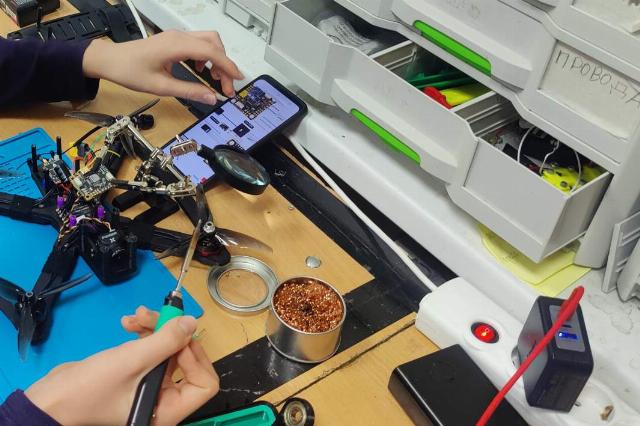
Photo: press service of GBOU lyceum No. 533 Krasnogvardeisky district of St. Petersburg
Image source: iz.ru
And training in piloting and countering UAVs will be conducted by the center's instructors, including those with combat experience.
According to the director, an agreement has also recently been signed between the center and the Russian Ministry of Education and Science, which will facilitate the implementation of this program in higher education institutions.
Julia Leonova
